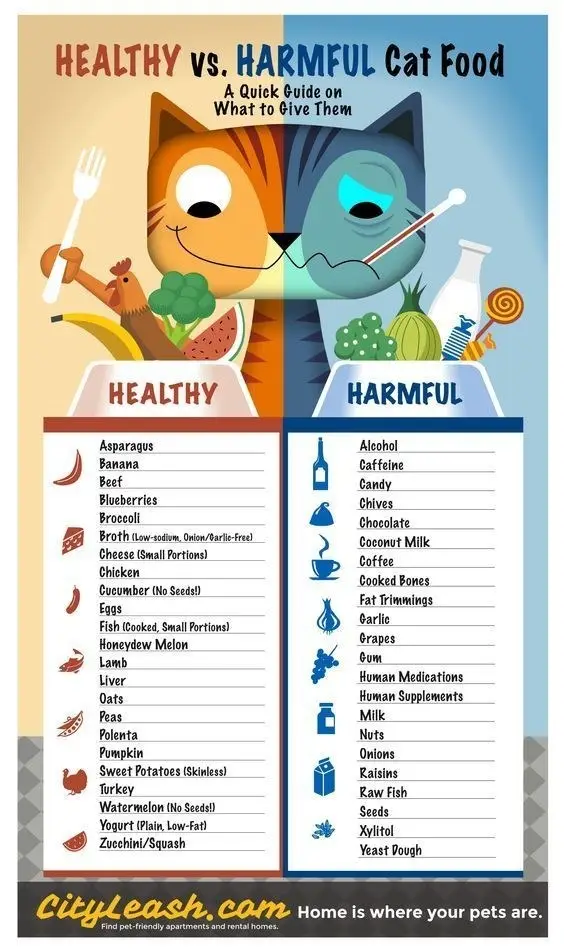Views: 81
Table of Contents
Introduction:
Proper nutrition plays a vital role in maintaining your cat’s overall health and well-being. As a responsible cat owner, for feed my cat, it’s crucial to know what foods are suitable and what should be avoided. In this comprehensive guide, we will walk you through the dos and don’ts of feeding your beloved feline companion.
Section 1: What to Feed Your Cats
Feeding a well-balanced diet to your cat is essential for their growth and development. Here are some guidelines on what you should include in their meals:
- High-Quality Cat Food: Opt for commercially available cat food that meets the nutritional requirements set by veterinary professionals. Look for options that are labeled “complete and balanced” to ensure your cat receives all the necessary nutrients.
- Animal Protein: Cats are obligate carnivores, meaning they require animal-based proteins in their diet. Look for cat food that lists meat as the primary ingredient, such as chicken, turkey, or fish.
- Essential Nutrients: Ensure the cat food contains essential nutrients like taurine, omega-3 fatty acids, and vitamins A and E. These nutrients are crucial for your cat’s heart, skin, coat, and overall health.
- Hydration: Cats have a low thirst drive, so it’s important to provide them with fresh water at all times. Wet cat food or adding water to dry kibble can help increase their hydration levels.
Section 2: What Not to Feed Your Cats
Some foods can be harmful or even toxic to cats. Avoid the following items in your cat’s diet:
- Toxic Foods: Onions, garlic, grapes, raisins, chocolate, caffeine, alcohol, and anything containing xylitol are toxic to cats and should be kept out of their reach.
- Bones: Cooked bones can splinter and cause serious injuries to a cat’s digestive system. Avoid giving your cat any cooked bones, including fish or chicken bones.
- Dairy Products: While cats may enjoy the taste, most adult cats are lactose intolerant and cannot digest milk or other dairy products properly. This can lead to digestive upset and diarrhea.
- Dog Food: Dogs have different nutritional needs than cats, so feeding your cat dog food can lead to nutritional imbalances. Ensure your cat has their own designated food.
FAQs (Frequently Asked Questions):
Q1: Can I feed my cat a homemade diet?
A: It’s best to consult with a veterinary nutritionist before switching your cat to a homemade diet. Cats have specific dietary requirements that may be challenging to meet without proper guidance.
Q2: Should I feed my cat a grain-free diet?
A: Grain-free diets have been a topic of debate among experts. While some cats may have specific grain allergies, grains like rice and corn are generally safe and can provide valuable nutrients.
Q3: How often should I feed my cat?
A: Cats are known to be grazers, so it’s recommended to offer small, frequent meals throughout the day. This mimics their natural hunting behavior and helps prevent obesity.
Conclusion:
By following this handy guide, you can ensure that your cat receives the nutrition they need for a healthy and happy life. Remember to provide them with high-quality cat food, avoid toxic foods, and consult with a veterinarian for any specific dietary concerns. Your furry friend will thank you with purrs and endless affection!
